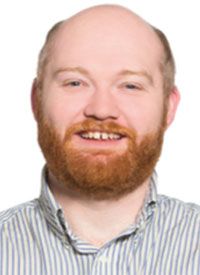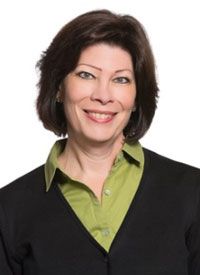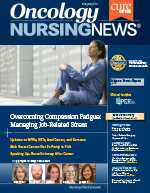Navigator Offers Strategies to Support Non-English Speaking Patients
The fear of undergoing cancer treatment is universal. Imagine, however, how it would feel to have a medical team that cannot speak a word of your language or even pronounce your name.
Jace Longnecker, BA, MBA, CCL

The fear of undergoing cancer treatment is universal. Imagine, however, how it would feel to have a medical team that cannot speak a word of your language or even pronounce your name. Envision trusting all of your communication to a series of interpreters whose skill level you have no way to assess. When I lived abroad, I could barely summon up the courage to have my hair cut by the locals! When non-English speaking patients access our medical system, it can be an immensely stressful time.
The many layers and multiple staff members of the American healthcare system may be in stark contrast to the medical experiences for someone from another country, and the length of time to interpret communication for non-English—speaking patients may cause even more distress. We can see why these patients may feel lost in the maze of US healthcare and are confused. Moreover, these gaps in experience and understanding may lead to nonadherence and even a sense of distrust.
Navigators are well-positioned to add an element of relational trust into the healthcare experience for patients from other cultures by eliciting surprising patient histories, using their assessment and listening skills, and asking spot-on questions.
I recall a telephone call I once had with a Vietnamese patient, who through an interpreter, mentioned symptoms she was experiencing. I turned the call over to Debbie Bickes, RN, MN, OCN, my supervisor and an oncology nurse, who discovered that the patient had been effectively starving herself by eating only rice water soup for 30 days after her surgery because she was told to have a “light diet” after surgery. The patient also mistakenly believed that she was not allowed to walk downstairs and had stayed in her bedroom for 30 days.
Using her nursing assessment and communication skills, Debbie had taken the time to uncover a serious misconception. The time she took was invaluable and allowed for an appropriate intervention—connecting the patient with her physician, empowering her, and helping to dispel a cultural belief that one should refrain from asking a doctor questions.
Debbie Bickes, RN, MN, OCN

Over the past decade, my goal has been to help people of other cultures receive the best healthcare possible, researching many groups and learning many languages along the way to improve communication with our international patients. Through this process, I have identified three strategies that have been very effective:
(1) View your culture from a newcomer’s perspective. American Ways: A Guide for Foreigners in the United States by Gary Althen is a book designed for immigrants and explains the differences between the US and other global cultures that can lead to frustration and confusion on both sides. Reading about our own culture helps us to recognize key differences which may impact patient care and also help practitioners to maintain humility and prevent unhelpful stereotyping.
(2) Overcome language barriers. In addition to using a qualified interpreter, clinicians can use open-ended communication and a “teach back” approach. Nurses understand these strategies by virtue of their training, but it is important for lay navigators and other nonlicensed healthcare staff to use these communication strategies as well when working with patients from other cultures. As a former interpreter in a healthcare clinic, I witnessed patients answering “yes” multiple times during conversations with physicians and realized that often patients would simply agree with the physician instead of actually respond to the questions.
To remedy this issue, we began asking open-ended questions, such as who, what, where, when, why, and how. We would ask patients to summarize their understanding in their own words by asking them to “teach back” to us. Using these strategies fortified our communication and relationships, improving patients’ understanding of their care plan.
(3) Assist non-English speaking patients with their written communications. This is especially important for navigators working with patients experiencing financial barriers. It can be a daunting task to obtain completed patient grant applications or even a signature on a form from patients who cannot read English. Many have admitted to throwing away mail they receive when the envelope is not addressed to them in their language.
One strategy we have used successfully is to ask non-English speaking patients to call when they receive mail in order to examine it together. We have also asked our Vietnamese and Chinese patients to go to a local Asian community center to have their mail explained to them. These strategies have resulted in patients who have kept more of their appointments, signed and returned more forms, and alerted navigators when they have received bills they cannot pay. This strategy has also assisted patients in renewing food stamps and other forms of government assistance which prevented a lapse in their benefits.
As navigators, we can make a great difference in the healthcare of international patients. By working together, we can empower patients from other cultures to improve not only their access to care, but also their care experience and outcomes.
___________________________________________________________________________________
Jace Longnecker has been a lay navigator for more than 5 years, and currently works in that role at Northside Hospital Cancer Institute in Atlanta, Georgia. Debbie Bickes has more than 30 years of experience as an oncology nurse serving in a variety of roles and is currently the CMS Program Coordinator at Northside.

Innovative Program Reduces Nurse Turnover and Fosters Development
Published: September 12th 2024 | Updated: September 12th 2024The US Oncology Network (The Network) has developed one of the most comprehensive programs in the nation to support the professional development and retention of new oncology nurses.
Innovative Program Reduces Nurse Turnover and Fosters Development
Published: September 12th 2024 | Updated: September 12th 2024The US Oncology Network (The Network) has developed one of the most comprehensive programs in the nation to support the professional development and retention of new oncology nurses.
Latest Conference Coverage
2 Commerce Drive
Cranbury, NJ 08512
All rights reserved.


